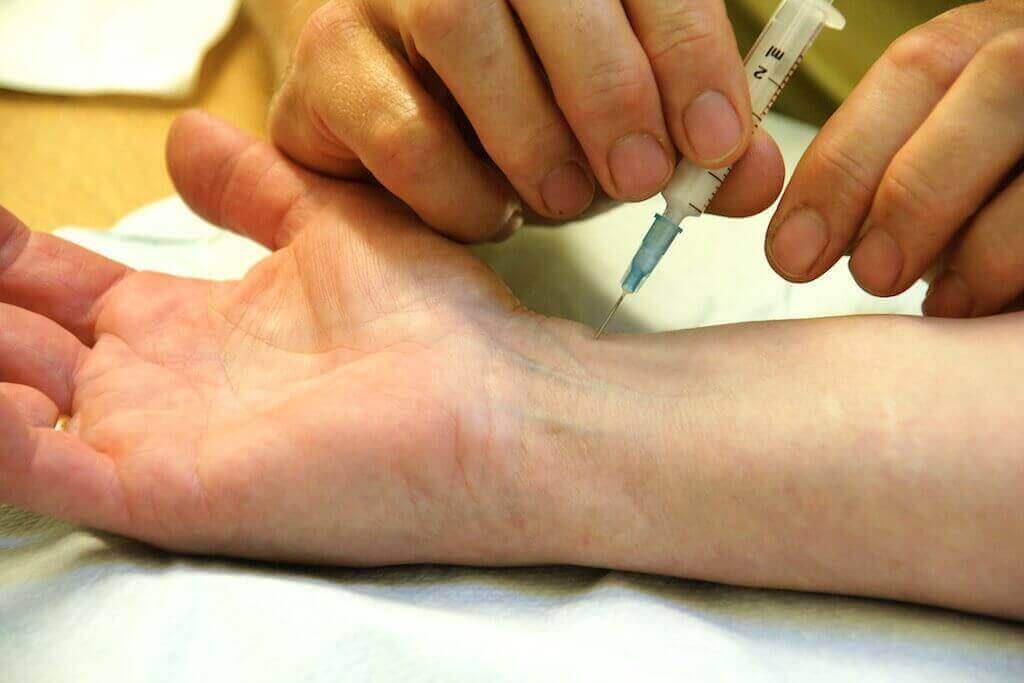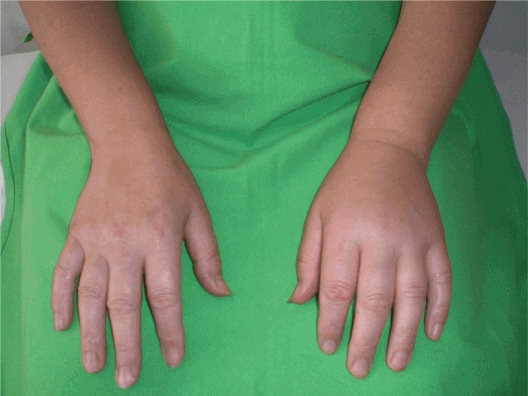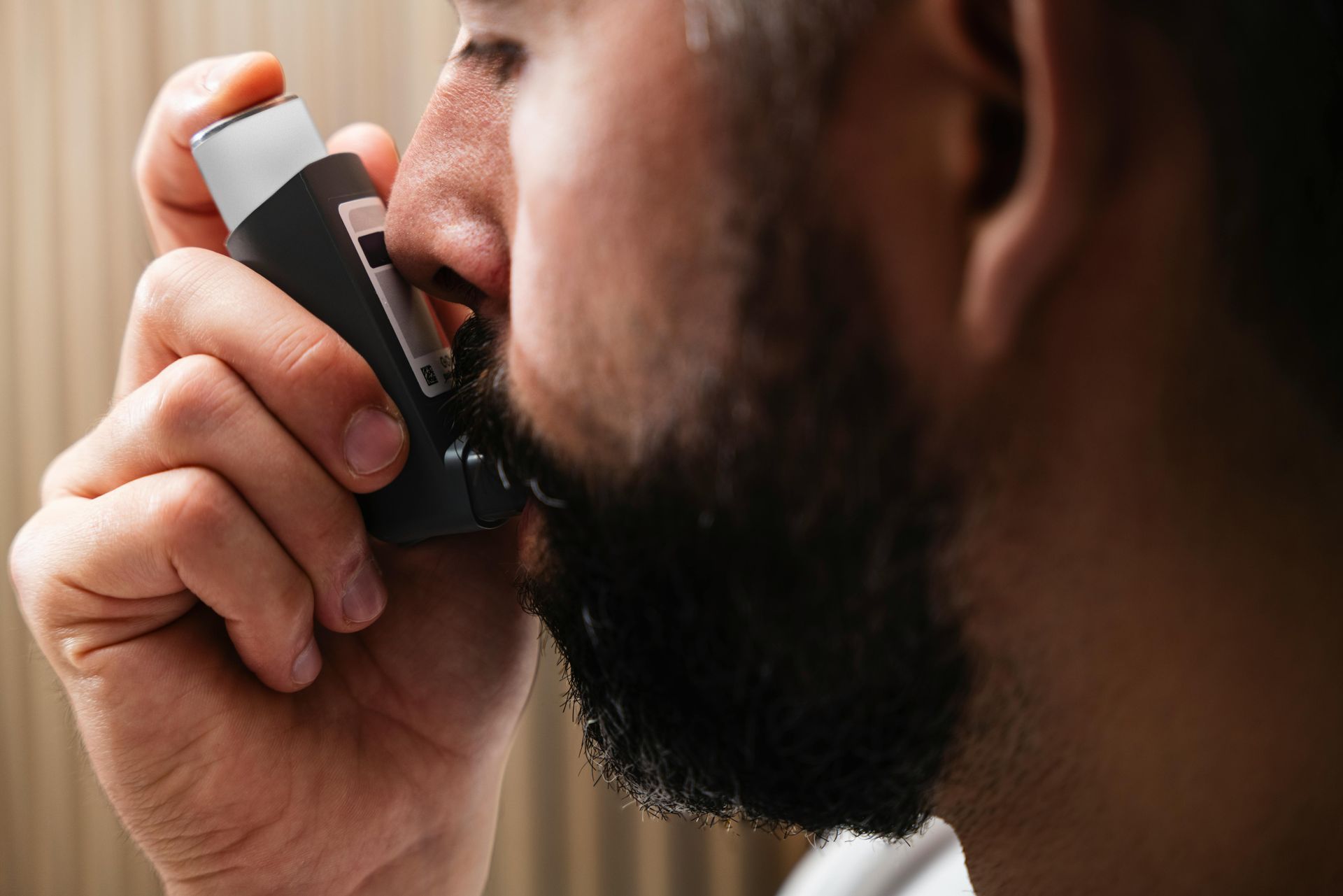What's a Carpal Tunnel Injection?
A doctor can give you a carpal tunnel injection into your wrist to help eliminate pain or numbness caused by this condition. These injections are very popular among doctors to manage a patient's symptoms. But do they work? Are they safe? You might be surprised by the facts.
Table of Contents
- How a carpal tunnel injection works
- What it's used for
- How it relieves symptoms
- Is a carpal tunnel injection effective?
- It does not work for everybody
- It only provides temporary relief
- Warnings about carpal tunnel injections
- Side effects of carpal tunnel injections
- Potentially dangerous side effects of steroid shots
- Less dangerous side effects of steroid shots
- When a carpal tunnel injection can't be used
- Summary
- About
How a carpal tunnel injection works
What it's used for
The following are the major
symptoms of carpal tunnel syndrome. They are limited to the palm of the hand and the first 4 fingers (not the pinky finger).
If you have one of these symptoms, then you're probably a candidate for a carpal tunnel injection of steroid. In fact, these injections are one of the most common treatments for carpal tunnel syndrome. Injections (or "shots") contain a steroid, technically called “cortisone” or “corticosteroid”.
You may also have heard of steroid pills or syrup. They're similar to these shots but in an oral form. However, oral steroid pills and syrup are
not nearly as effective against carpal tunnel syndrome as the injections.
How it relieves symptoms
The injectable steroid goes through a hypodermic needle and directly into the problem area. In this case, the wrist joint. This direct approach is why the shots are commonly used to treat carpal tunnel syndrome. Also, the injections can be used to relieve any tender or inflamed joint, like the shoulder, knee, or hip.
Usually, inflammation causes pain. The steroid injections reduce inflammation and therefore the associated pain. Inflammation causing carpal tunnel syndrome is no different. That's why a carpal tunnel injection is used to relieve inflammation in the wrist and the pain it produces.
A carpal tunnel injection of corticosteroid is primarily used when
other nonsurgical remedies did not help. Those other remedies are great when symptoms are mild. They include:
If your symptoms are
severe, using all of the above remedies
in combination has a better result than carpal tunnel injections.
Learn more here.
Is a carpal tunnel injection effective?
It does not work for everybody
In general, a carpal tunnel injection of corticosteroid can be an effective pain reliever for this condition. But the effects are not a guarantee of relief. Furthermore, they do not work at all in many patients.
- When they work, the injections usually act quickly - within hours or days.
- Sometimes the pain relief lasts for weeks or a few months.
However, in 2017, the National Institutes of Health asked
carpal tunnel doctors how effective a carpal tunnel injection
really
was as a treatment. Its findings surprised almost everybody.
In spite of these shots being so popular, the report showed they are not as effective as most doctors believed. Quoting the
National Institutes of Health. in general, a carpal tunnel injection: "...provided noticeable short-term relief from symptoms in about 45 out of 100 people."
That’s only 45% effectiveness.
It only provides temporary relief
Most doctors will tell you that if you DO get any pain relief from the carpal tunnel injection, it is
temporary.
It typically lasts for a few weeks to several months.
According to a recent NIH
report, the relief period depends on many factors. They include your initial
level of pain, length of time you had pain, and if you have other chronic illnesses like diabetes or
arthritis.
The report goes on to say that this effectiveness isn’t so dramatic. That's because in 30% of patients, carpal tunnel symptoms improve on their own
- without shots.
All this brings the massive popular use of a carpal tunnel injections into question.
Warnings about carpal tunnel injections
The
American Academy of Orthopedic Surgeons (AAOS) has strong recommendations for doctors about carpal tunnel injections. They advise trying
all other forms of pain management before a corticosteroid injection is attempted.
The AAOS’s also warns doctors:
- They can administer steroid injections only
3 times a year into a single joint.
- If 3 shots don't help relieve pain, more shots are
not likely to have an effect.
- The likelihood of steroid injections
doing harm (see below) increases with additional shots.
Therefore, doctors must limit the number of injections used to treat carpal tunnel patients.
Side effects of carpal tunnel injections
All medications have
some
side effects. However, most people don't feel them. Others just cope with them because the “therapeutic effect” is much greater than the side effects. In other words, the benefits of the medicine may be more important than any side effect it produces.
Side effects for medicines are sometimes called "adverse effects" or "adverse events". There are 2 levels:
"Potentially Dangerous"
and
"Less Dangerous" side effects.
Potentially dangerous side effects of steroid shots
These side effects have serious undertones and can mean a life-threatening condition. While they're rare, call 911 if they occur:
- Trouble breathing
- Swelling in your face, lips, tongue or throat
Less dangerous side effects of steroid shots
These side effects of a carpal tunnel injection are not as dangerous. They're also rare, and include:
- Pain and swelling around the injection site (if it lasts more than 2 days)
- Increased appetite
- Nervousness or restlessness
- Infection-like fever or a sore throat
- Persistent nausea, stomach pain, or vomiting
- Bloody or black, tarry stools
- Quick weight gain
- Changes in vision like blurriness or eye pain
- Muscle pain, weakness, or cramps
- Changes in skin, like reddish purple lines, rash, hives, or acne
- Thirstiness, especially with frequent urination
The most common side effect of a carpal tunnel injection is
pain and swelling around the injection site. It usually lasts for 1-2 days. Any more time needs your doctor’s attention. But you can ease the pain with ice for 15 to 20 minutes every 2 hours.
Finally, there is a very rare possibility of another side effect. Any
hypodermic injection into a joint or tendon has the small risk of piercing a tendon, ligament, or nerve. These can cause joint weakness or even some paralysis.
When a carpal tunnel injection can't be used
A carpal tunnel injection of corticosteroids cannot be used under certain conditions. These are called “contraindications”. No one should have steroid shots of any kind if:
- The patient is a child
- A woman is
pregnant or breastfeeding
- The doctor suspects an infection
- A patient takes other medicines that steroids interfere with
Always check with your doctor to ensure he or she knows about all of the medicines you take. Remember to include supplements and
vitamins. Only then can the doctor determine if you're a candidate for a carpal tunnel injection.
Summary
Even today, many doctors still administer a carpal tunnel injection of a corticosteroid drug on a
regular basis.
This is in spite of 1) research showing they're not as effective as commonly thought, and 2) cautions from regulators about their safety. In contrast, many non-surgical remedies provide far better outcomes in treating carpal tunnel syndrome. And they don't carry the same potential hazards as carpal tunnel injections.
FAQs
If a steroid injection only works about half of the time, why bother doing it?
Most doctors and patients feel that the relatively little cost and minimal pain of the injection is worth the gamble of possibility reducing symptoms, even by a little bit.
Can I get a steroid injection if I have diabetes?
Usually you can if your blood glucose is under control. Ask your doctor first.
Which kind of doctor gives these injections?
Several specialties can be sought. They include doctors of orthopedics, neurology, hand specialists, radiology, pain management, and sports medicine.
About









